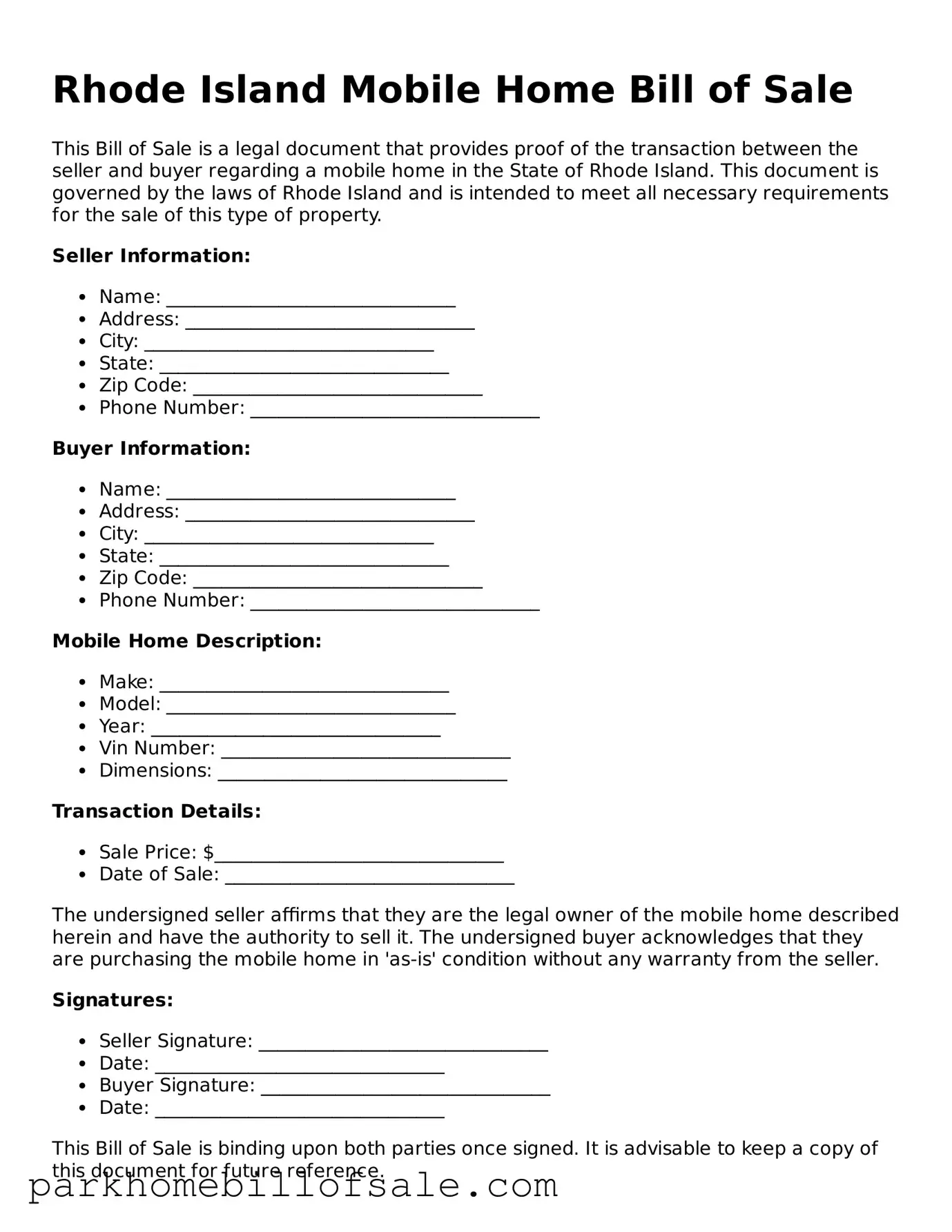Documents used along the form
When buying or selling a mobile home in Rhode Island, the Mobile Home Bill of Sale is an essential document. However, several other forms and documents are often used in conjunction with it to ensure a smooth transaction. Below is a list of these important documents, each serving a specific purpose in the process.
- Title Transfer Form: This document officially transfers ownership of the mobile home from the seller to the buyer. It is crucial for updating the state records to reflect the new owner.
- Affidavit of Ownership: This sworn statement confirms that the seller is the rightful owner of the mobile home and has the authority to sell it. It helps prevent disputes over ownership.
- Bill of Sale for Personal Property: While the Mobile Home Bill of Sale is specific to mobile homes, this general bill of sale can be used for other personal property included in the sale, such as appliances or furniture.
- Inspection Report: An inspection report provides a detailed assessment of the mobile home’s condition. Buyers often request this document to understand any potential issues before finalizing the purchase.
- Loan Agreement: If the buyer is financing the purchase, a loan agreement outlines the terms of the loan, including interest rates and payment schedules. This document is vital for both parties to understand their financial obligations.
- Rental Agreement (if applicable): If the mobile home is located in a park, a rental agreement may be necessary to establish terms for renting the lot. This document governs the relationship between the mobile home owner and the park management.
- Proof of Insurance: Buyers may be required to provide proof of insurance for the mobile home. This document demonstrates that the buyer has secured coverage, which protects both the buyer and seller during the transaction.
- Tax Clearance Certificate: This certificate shows that the seller has paid all property taxes related to the mobile home. Buyers often request it to ensure there are no outstanding tax liabilities.
- Power of Attorney: In some cases, the seller may not be able to attend the closing. A power of attorney allows another person to act on their behalf, ensuring the transaction can proceed smoothly.
Having these documents prepared and organized can significantly streamline the process of buying or selling a mobile home in Rhode Island. It helps both parties feel confident and secure in their transaction, ensuring that all legal bases are covered.
